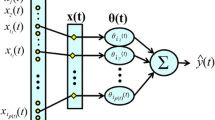Abstract
For linear discrete time-invariant stochastic system with correlated noises, and with unknown state transition matrix and unknown noise statistics, substituting the online consistent estimators of the state transition matrix and noise statistics into steady-state optimal Riccati equation, a new self-tuning Riccati equation is presented. A dynamic variance error system analysis (DVESA) method is presented, which transforms the convergence problem of self-tuning Riccati equation into the stability problem of a time-varying Lyapunov equation. Two decision criterions of the stability for the Lyapunov equation are presented. Using the DVESA method and Kalman filtering stability theory, it proves that with probability 1, the solution of self-tuning Riccati equation converges to the solution of the steady-state optimal Riccati equation or time-varying optimal Riccati equation. The proposed method can be applied to design a new selftuning information fusion Kalman filter and will provide the theoretical basis for solving the convergence problem of self-tuning filters. A numerical simulation example shows the effectiveness of the proposed method.
Similar content being viewed by others
References
He Y, Wang G H, Lu D J, Peng Y N. Multisensor Information Fusion with Applications. 2nd ed. Beijing: Publishing House of Electronics Industry, 2007 (in Chinese)
Sun X J, Zhang P, Deng Z L. Self-tuning decoupled fusion Kalman filter based on the Riccati equation. Frontiers of Electrical and Electronic Engineering in China, 2008, 3(4): 459–464
Deng Z L, Gao Y, Li C B, Hao G. Self-tuning decoupled information fusion Wiener state component filters and their convergence. Automatica, 2008, 44(3): 685–695
Deng Z L, Li C B. Self-tuning information fusion Kalman predictor weighted by diagonal matrices and its convergence analysis. Acta Automatica Sinica, 2007, 33(2): 156–163
Ljung L. System Identification: Theory for the User. 2nd ed. New Jersey: Prentice Hall, 1999
Anderson B D O, Moore J B. Optimal Filtering, Englewood Cliffs. New Jersey: Prentice Hall, 1979
Chui C K, Chen G. Kalman Filtering with Real-Time Applications. Berlin Heidelberg: Springer-Verlag, 1987
Dai H. Matrix Theory. Beijing: Science Press, 2001 (in Chinese)
Kamen E W, Su J K. Introduction to Optimal Estimation. London: Springer-Verlag, 1999
Jazwinski A H. Stochastic Processes and Filtering Theory. New York: Academic Press, 1970
Kailath T, Sayed A H, Hassibi B. Linear Estimation. New Jersey: Prentice Hall, 2000
Author information
Authors and Affiliations
Corresponding author
About this article
Cite this article
Ran, C., Tao, G., Liu, J. et al. Convergence analysis of self-tuning Riccati equation for systems with correlation noises. Front. Electr. Electron. Eng. China 4, 409–416 (2009). https://doi.org/10.1007/s11460-009-0056-4
Received:
Accepted:
Published:
Issue Date:
DOI: https://doi.org/10.1007/s11460-009-0056-4




